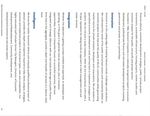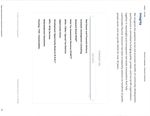Council Business Meeting - City of Ashland
←
→
Page content transcription
If your browser does not render page correctly, please read the page content below
Council Business Meeting
October 19, 2021
Agenda Item Revenue Options Discussion
From Gary Milliman City Manager Pro Tem
Contact Gary.milliman@ashland.or.us
SUMMARY
Preliminary Discussion of Revenue Options
BACKGROUND AND ADDITIONAL INFORMATION
The City Council scheduled a discussion of revenue alternatives as a part of its series of financial review meetings.
Revenue options in Oregon are very limited under State Law. Ashland has already enacted many of those revenue
measures, such as the Food and Beverage Tax. This report is not a comprehensive look at revenue options.
Staff has attached some revenue options material utilized by the City of Salem in 2020; a report generated by the
Sustainable Services Revenue Task Force. The topic recommendation from that citizens committee effort was to
enact a “City Operations Fee” of $6.40 pr month to be collected through the monthly utility bill. Cities have
increasingly used a fee attached to utility service as a mechanism to either pay for specific services, general
operations or capital improvements. The City of Brookings has a long-standing “system replacement fee” (SRF)
that is collected through the water/sewer bill at a cumulative rate of $12.14 monthly (Water, Sewer, Storm Drain
combined). Brookings dropped its streets SRF when the voters approved a fuel tax about five years ago.
Voter-approved levies (property tax) have also been used to fund operating costs. These are typically five-year
levies. For example, the voters in Port Orford approved two successive five year levies to sustain their Police
Department. Repeated levy attempts in Curry County to fund law enforcement have failed.
In Ashland, a citizens Ad Hoc Committee studied various revenue options in 2019-2020. It appears that operating
levies were discussed as the principal options at that time. These included property tax levies for capital projects
(this proposal failed voter passage), “essential services” (police, fire, court), “value services” (CERT, housing, band,
economic development grants, social service grants). The other option listed was a “Live Entertainment Ticket
Tax.” It does not appear that a fuel tax to fund street repair was among the options listed. Brookings voters have
twice approved a local fuel tax.
Recognizing that voters are experiencing “tax and fee fatigue”, cities have increasingly focused on developing
public/private partnerships to not only undertake capital projects, but to generate revenue from projects in which the
City is a “partner.” In about 2005 when I was in South Gate, California, the City used the value of the infrastructure
it was providing in support of a new shopping center development, as well as its work in assembling a site for the
project, to secure an equity share in the project itself. This has resulted in generating over $5.0 million in equity
partner revenues to the City’s General fund. I have included information in the packet about the company I worked
with in crafting this deal; they would be willing to explore partnership opportunities in Ashland.
STAFF RECOMMENDATION
None
ACTIONS, OPTIONS & POTENTIAL MOTIONS
Discussion and direction to staff.
REFERENCES & ATTACHMENTS
Attachment 1. Ashland Revenue Option Summary 2019-2020
Page 1 of 2You can also read
























































